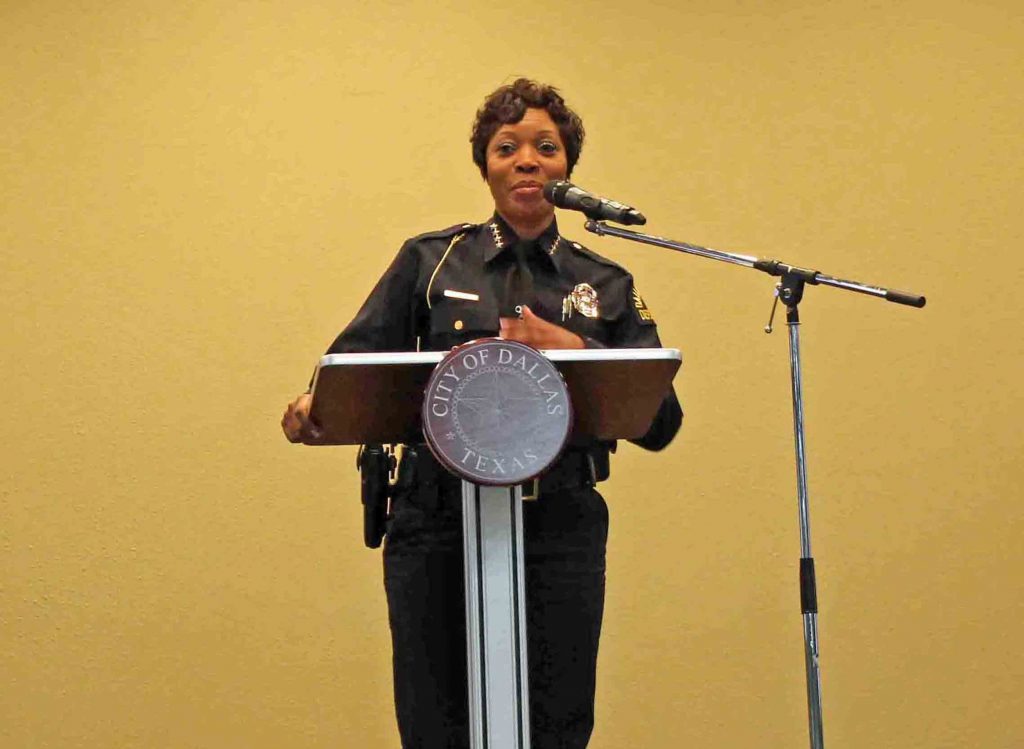In a recent post about Dallas Police Chief and Lake Highlands resident Reneé Hall, a Facebook reader commented that her leadership position was an example of the “glass cliff.”
What’s a “glass cliff”? “Women are elevated to positions of power when things are going poorly,” according to a Vox story. “When they reach the upper ranks of power, they’re put into precarious positions and therefore have a higher likelihood of failure.”
Here’s how Fast Company describes it: “Women can rise to leadership, but when they’re brought in to turn things around during dire times, they have to bear the blame if things don’t go well. So while they’ve managed to break through the glass ceiling, they’re then pushed off the glass cliff.”
Dallas Police Chief Hall recently released a 26-page report, which was a comprehensive crime-fighting plan, and received a lot of feedback, not all positive.
One of those who had a lot to say was Mayor Eric Johnson, who said he had “some concerns that I hope to see addressed in the coming weeks,” according to WFAA.
He also said that the goal to reduce crime doesn’t go far enough. A Jan. 13 meeting between the police department and the City Council’s Public Safety committee resulted in the entire Council showing up to express concerns for DPD’s violent crime plan.
Several Council members questioned the plan’s outcome metrics, saying they are in some places vague and unhelpful, and in others, unambitious, according to D Magazine.
Since Hall became police chief in 2017, crime rates in 2016 were up 40% from the previous year, according to rates reported in a 2016 Dallas Morning News article. However, the DPD website states that “under Chief Hall’s leadership, there was a 5.7 percent reduction in overall crime in 2017 and a 5.97 percent reduction in violent crime in 2018.”
What is Chief Hall’s role? What would you do?






